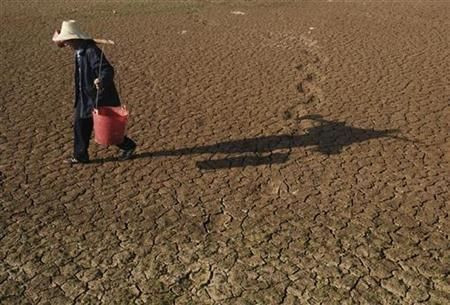Aussie study claims climate change is affecting farmers’ mental health

Given the close linkages between farming and weather, the climate change phenomenon is seriously affecting the mental health of farmers, suggests a new study conducted by an Australian scientist from the University of Murdoch.
Neville Ellis, from Murdoch University’s Centre for Responsible Citizenship and Sustainability, interviewed 22 farmers in Newdegate town in Australia’s southwestern corner, reports Think Progress. The study was aimed at understanding how climate change is affecting the mental well-being of farmers.
With Newdegate suffering intense drought and a 20 percent decline in rainfall since the 1970s, it was an ideal location to undertake the research. The area, which is of high agricultural importance to Australia, is expected to continue to witness a dry spell with the worsening climate change.
The interviews were conducted during 2013 and 2014, which were some of the warmest years on record for Western Australia and some of the driest for Southwestern Australia. Ellis found that the weather vagaries were having a negative impact on the mental health of the farmers, who shut themselves out from the real world by confining themselves to their homes.
“The South West of Western Australia has experienced abrupt and severe climate change in the last forty years,” says Ellis. According to Ellis, farmers have always worried about the weather but this worry is now becoming “detrimental to their mental health and wellbeing.”
Ellis says uncertainty seems to be at the heart of the farmers’ worry. He observed some farmers check weather forecasts on their farms up to 30 times a day. Some, in fact, tracked distant weather events such as storms in Africa in hopes that the rains from distant places would reach Australia.
Ellis further stresses the importance of farmers receiving support from counseling and health services in the region. “Unfortunately, with all the projections predicting our climate will get hotter and drier, it is only going to get harder for many of these farmers,” he says.





















